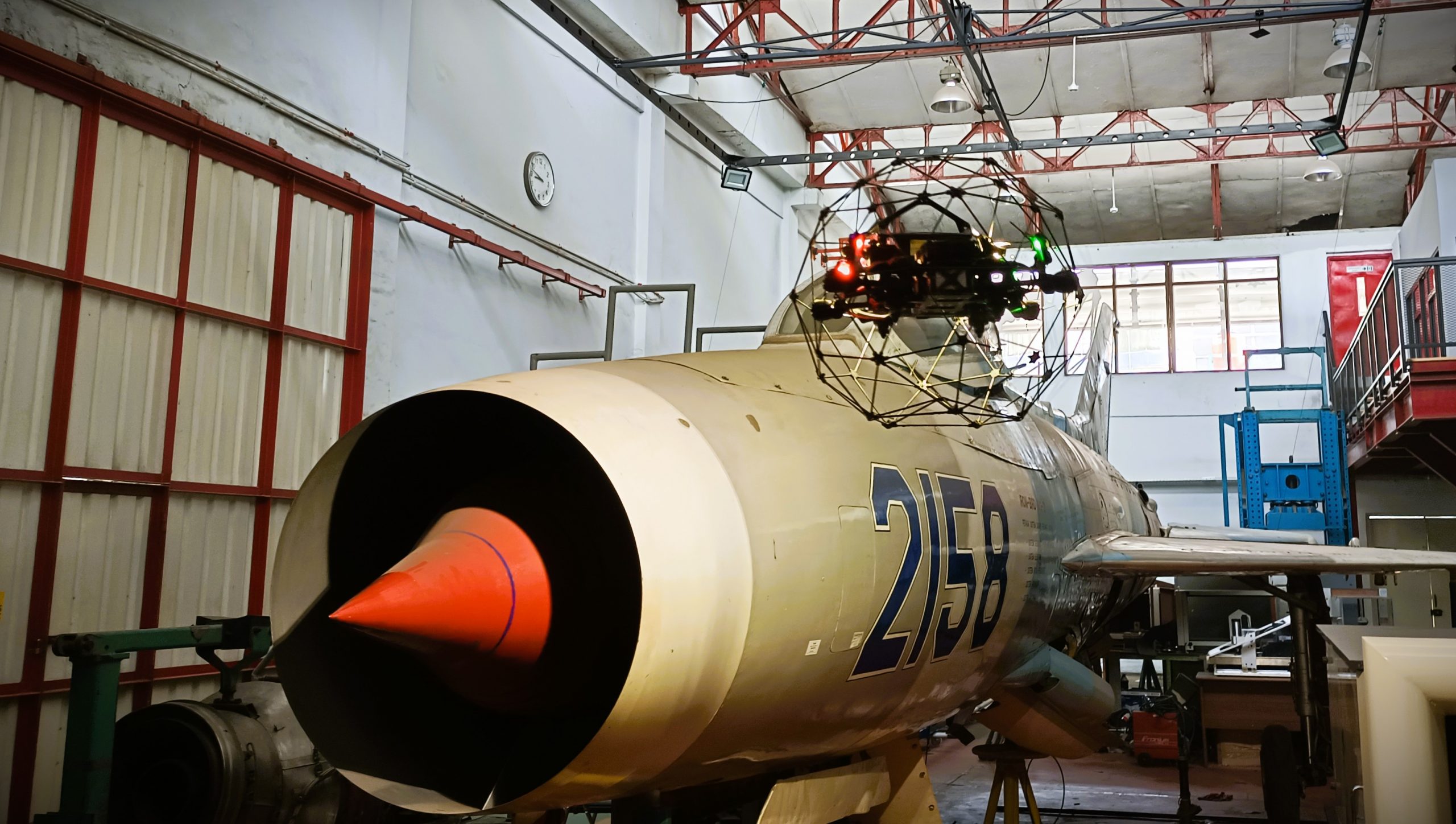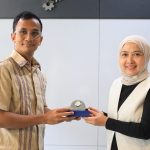FMAE ITB with Terra Drone Indonesia Conduct Aircraft Inspection Tests and Demonstrations
Unmanned Aerial Vehicles (UAVs) have proliferated significantly recently and are employed for various human purposes, both in military and civilian domains. One of the swiftly evolving segments within the civilian drone market is the utilization of drones for inspection purposes. In this context, inspection examines structures such as buildings, electrical facilities like high-voltage power transmission lines, and industrial facilities. The particular focus of this research is the inspection of aircraft.
Since 2020, the Faculty of Mechanical and Aerospace Engineering (FTMD) at Institut Teknologi Bandung (ITB), under the supervision of Dr. Yazdi Ibrahim Jenie from the Aviation Physicists, has actively contributed to the development of micro- and nano-level drones for aircraft inspection. 2023 has witnessed significant progress in this research area, marked by FTMD ITB’s collaboration with the multinational drone company Terra Drone Indonesia. This collaboration has also been facilitated by funding from the Directorate General of Higher Education of the Ministry of Education, Culture, Research, and Technology of the Republic of Indonesia (Ditjen Dikti Kemendikbudristek RI) through the MatchingFund KedaiReka 2023 scheme. The research project is titled “Development of Micro-UAV for In-Service Commercial Aircraft Inspection Missions.”
Collaboration with partners and the support of funding have expedited the development process and established the necessary network for the advancement of this research project. Consequently, on the last Saturday, September 9, 2023, a flight test and aircraft inspection demonstration utilizing a professional inspection drone (Elios from Flyability) were conducted in the aerodynamics laboratory of the Faculty of Mechanical and Aerospace Engineering (FTMD) at Institut Teknologi Bandung (ITB) on a demonstrator MiG21 aircraft. This flight test was intended to serve as a benchmark for further developing FTMD’s inspection drones, encompassing vehicle design, control systems, and testing procedures.
The testing and demonstration took place over two hours, with each flight lasting approximately eight minutes. Before the execution of the testing, meticulous flight planning was of utmost importance, especially considering the presence of numerous objects within the hangar, including concealed tether cables. Flight safety was the paramount consideration in this procedure, with a checklist of items that needed to be satisfied to ensure the proper execution of all preparation stages. Only after all checklist items were correctly fulfilled could the drone be operated. To ensure safety awareness, we conducted a presentation outlining the procedures before each flight to ensure that all observers at that time comprehended the significance of this process in maintaining safety.
The flights were conducted in various configurations, encompassing a wide inspection area, varying distances from the aircraft’s surface, and variable flight speeds. Throughout the flights, the entire aircraft surface, including the underside of the wings, was meticulously inspected. Inspection was carried out using visible light cameras and infrared cameras to measure the surface temperature of the aircraft. The Elios drone was flown around the MiG21 aircraft up to 10 times, even piloted by undergraduate Aerospace Engineering students on several occasions. The primary outcome of these tests comprises high-definition visual and thermal recordings, which can subsequently be used for further analysis to assess the condition of each aircraft surface.
After completing the MiG21 aircraft inspection, the Terra Drone team also conducted additional aerial inspections of the photovoltaic solar panel roofs on the Teras FTMD and the roof of the Production Engineering Laboratory, employing a DJI Matrices drone. The entire inspection and testing process proceeded smoothly and safely until 14:00. After the testing, the results were presented alongside valuable concluding procedures for the subsequent steps in the research and development of FTMD’s micro-UAVs, particularly in commercial aircraft inspections.







